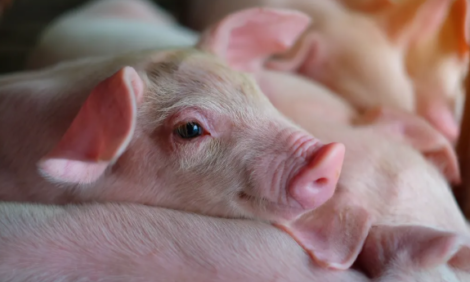



Easing Problems Caused by Urease
By Alicia Roberts, Ontario Pork - Piglet health is under close watch now that University of Guelph researchers have identified a potential leading factor in post-weaning piglet diarrhea. The symptom is caused by an enterotoxigenic E. coli (ETEC), specifically O149 E. coli, which produce toxins in the gut.
"There have been accounts of piglet diarrhea in the past, but nothing this severe," says Prof. Carlton Gyles, Department of Pathobiology. "This suggests that other unrecognized factors are contributing to the disease."
ETEC causes diarrhea in piglets at two important times in their lives; the neonatal stage and the post-weaning period. Diarrhea in piglets leads to dehydration, a lack of electrolytes and can result in death.
Gyles and his team compared old O149 E. coli isolates to the recent strain, finding the new strain produces an additional toxin and the enzyme urease, a new feature for E. coli.
Urease could break down urea into ammonia and carbon dioxide. Ammonia can neutralize acidity, which may allow organisms to survive in an acidic environment such as the stomach or intestine. As well, ammonia can be toxic to cells causing irritation and damage.
To determine if urease contributes to the development of the diarrhea, Gyles has removed a critical urease gene from an O149 E. coli and tested its ability to cause diarrhea in pigs. He found that when this urease gene is removed, the ability of the E. coli to cause diarrhea is drastically reduced.
Others involved in this project are Profs. Valeria Perreira and Patrick Boerlin, Department of Pathobiology and Robert Friendship, Department of Population Medicine.
This research is supported by Ontario Pork and the Ontario Ministry of Agriculture, Food and Rural Affairs.
For more information, contact Jean Howden, Ontario Pork research coordinator, at 1-877-668-7675 or [email protected].
Source: Ontario Pork - January 2006
Alicia Roberts is a writer with SPARK, the University of Guelph's student writing program.









